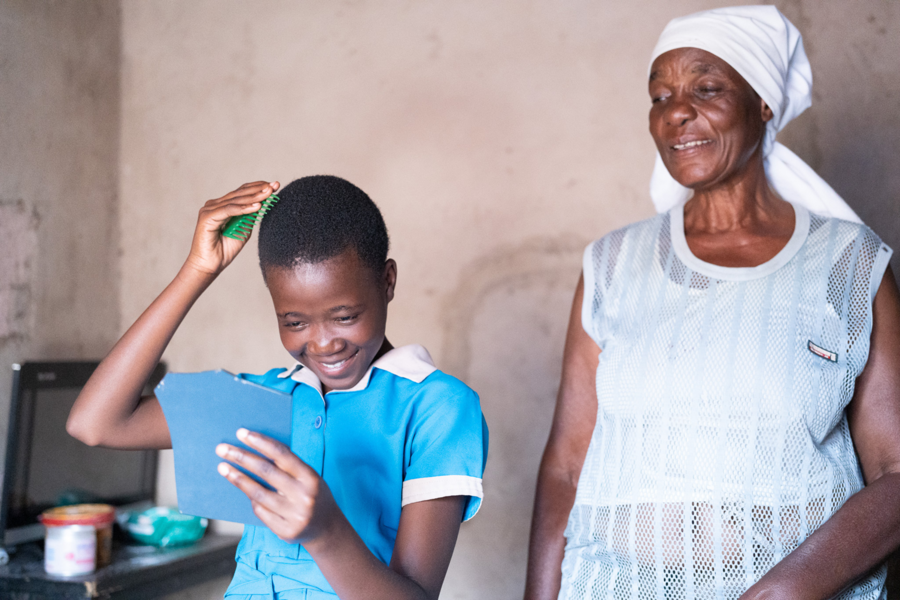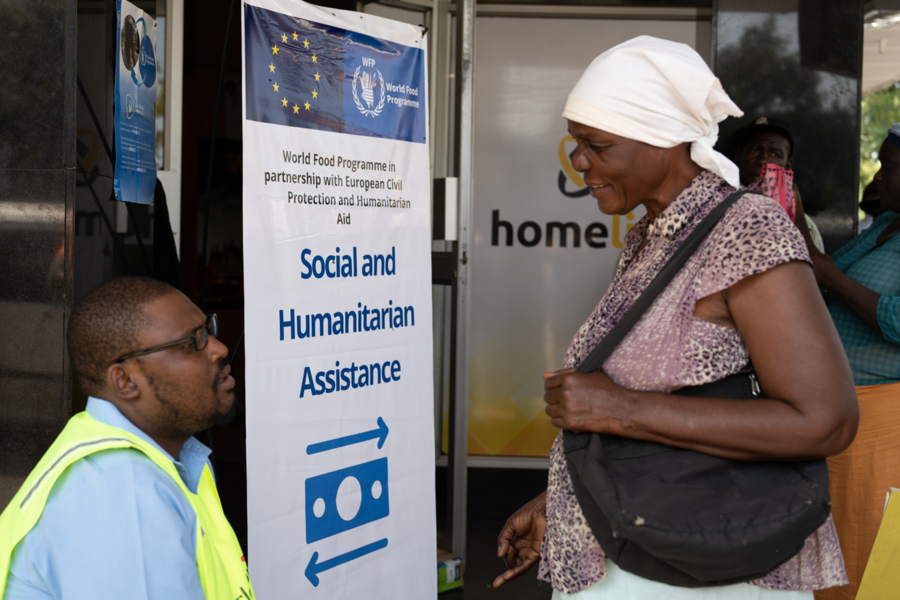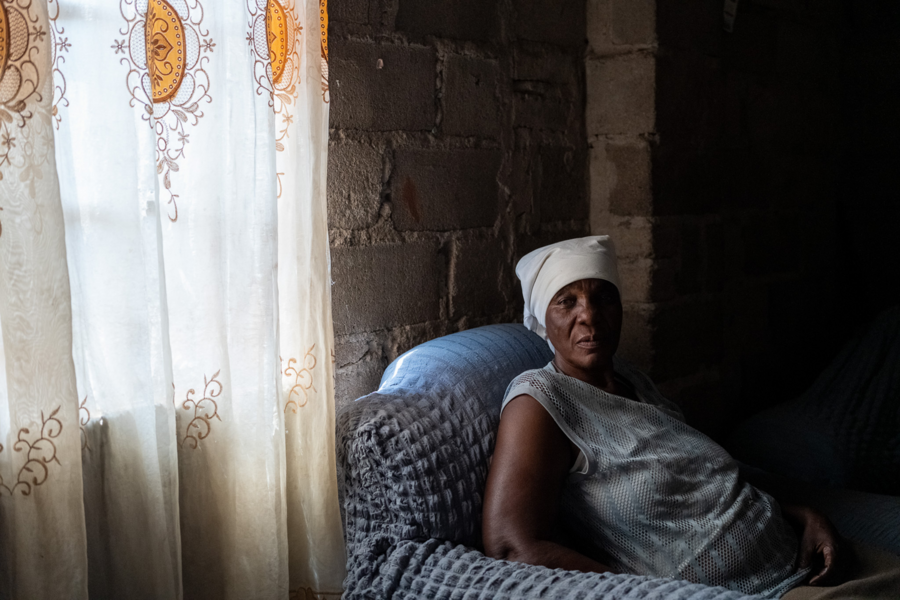Zimbabwe: EU cash enables families to buy food amid rising prices and inflation
“I’m the parent here, I’m responsible for everything,” says Egnetta, a woman in her sixties who heads a household of 20 in Bulawayo, Matabeleland, in the southwest of Zimbabwe.
Looking after her children, grandchildren and great-grandchildren leaves little time for seeking paid employment.
“It’s not an easy job for a single mother and a widow to be the breadwinner of such a big family,” she says.

Up to a third of Zimbabweans in towns and cities are unable to afford a nutritious diet – food tends to be available but not affordable. Cash support from the World Food Programme (WFP) helps. It enables people to buy food and other essentials at a time when inflation and soaring prices otherwise restrict people’s access to money, playing into the hands of food insecurity.
In 2022, the knock-on effects of the war in Ukraine, which sent food, fuel and fertilizer prices up around the world, setting back hopes of recovery from the lingering effects of the pandemic.

A small field of maize the family plants provides nowhere near enough to meet everyone’s needs. The cost of firewood, gas, electricity, school fees – and, of course, food – makes day-to-day living next to impossible. No matter how family members have tried to combine their various income streams, they often fall short of ensuring there is enough food on the table for all.
Only 8 percent of children in Zimbabwe’s urban hubs get the minimum acceptable level of quality and quantity food that they need.
“Life used to be better … but [now the Zimbabwean dollar] can't buy as much,” says Egnetta. “We could go for two or three days without food,” she says. “The grandchildren would survive on porridge, and the adults would skip meals.”
WFP, with the support of donors including the European Union, is working in urban environments around Zimbabwe to assist people who share Egnetta and her family's circumstances. Having enrolled in a WFP-backed programme last year, Egnetta receives a mobile-money stipend every month. She uses this to buy food and other necessities.

“We buy maize, rice, and cooking oil, and vegetables like tomatoes, onions and paprika,” she says. “Some of my neighbours are widows like me, and they raise poultry, so I buy chickens from them. If there’s money left over, we save it until we need to buy food again.”
With the burden of meeting her family's food needs alleviated by this support, Egnetta can focus on her family's education and future. “I am not [formally] educated, but I know the importance of school. My father only educated my brothers. As young girls, we were never given a chance to go to school. I had to labour to earn a living,” she says.
A major EU donation in 2022 to help WFP respond to the worst effects of the spiralling global food crisis means that in Zimbabwe we are able to reach more urban populations with direct cash assistance.
This assistance means that once Egnetta covers the family's basic living costs, she can make sure the children’s school fees are paid. “I want to see my grandchildren succeed,” she says, “and have a better life than what I experienced.”
With WFP putting more money into people’s hands, they are able to buy food during the ongoing economic instability – that, in turn, supports local markets. In supporting the social safety nets of countries like Zimbabwe, WFP works towards leaving a legacy of strengthened systems doing away with the needs for this mode of assistance altogether.
